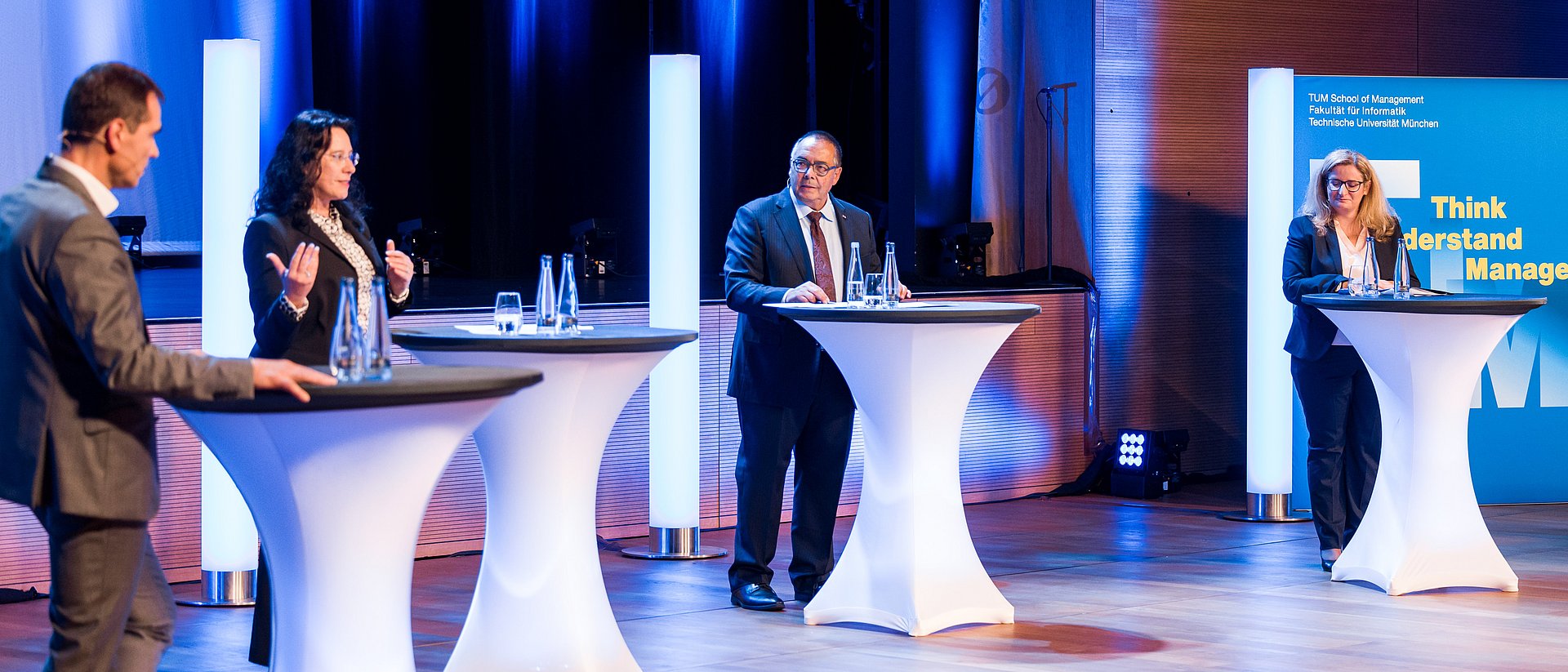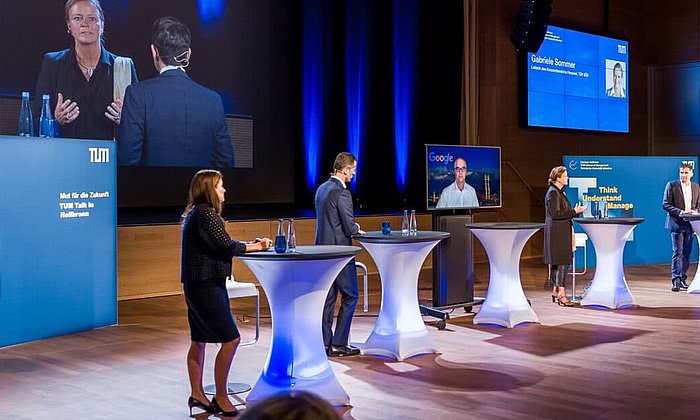TUM Talk in Heilbronn focuses on family-owned companies
"Redefining tradition"

A personal history reaching far back and a vision focused on the future: Family-owned companies have to master this balancing act when deploying their operations to last. "It's perfectly clear to us that we'll have to redefine tradition if we want to preserve it for the future," says Sarna Röser, the designated fourth-generation corporate heir of pipe specialist Karl Röser & Sohn in Mundelsheim. She is also the German national chair of the young family entrepreneur's association "Die jungen Unternehmer". Wednesday evening she raised the enthusiasm of both on-line livestream and in-person audiences for lively exchange between business and science.
Those who rest lose the future
And the high level of interest in the roundtable discussion was no surprise: The Heilbronn-Franken region is home to a large number of family-led companies that feel increasingly under pressure. Today, as these companies lead their operations though the digital transformation, they are increasingly focusing on sustainability. At the same time, they have to prepare a transition to the next generation. "Anyone who chooses to rest on the laurels of their predecessors' inventiveness has already lost the future," warned host Prof. Thomas F. Hofmann, President of TUM.
At the Heilbronn site TUM has established an interdisciplinary research focus in the form of the Global Center for Family Enterprise (GCFE), led by Professor Miriam Bird. Here research is conducted on the scientific answers to questions of entrepreneurial practice at the intersection of business, law, psychology and sociology. This calls for the core competencies so often attributed to family-owned companies: Creativity, self-motivation and a high degree of innovative power.
The guests at the TUM Talk offered an impressive display of these qualities. Kirsten Hirschmann, Managing Partner of laboratory equipment manufacturer Hirschmann Laborgeräte, referred to a solar-powered device made by her company – which was put on the market as early as 2000. The pioneering product unified economy and ecology: "It features a highly developed sustainability aspect, but in particular a high degree of benefit to the customer," said Hirschmann.
New ideas and ways of working for traditional businesses
The array of innovation has in the meantime taken on a much wider scope. Instead of quiet experimentation behind closed doors, the emphasis is increasingly shifting towards collaborative effort. Exchange with start-ups can help bring new ideas and new work methods to a traditional company: "This is a good way to transplant the enthusiasm of young companies to established family-owned companies," said attorney Wolf Michael Nietzer, who advises many entrepreneurs. But faced with limited resources, general partners and CEOs have to be careful not to spread themselves too thinly. "I'm not in favor of thinking completely 'out of the box'," said Uwe Wagner, Chief Technology Officer at automotive component supplier Schaeffler, "Instead I'm for constantly making your own box a little bit bigger."
Consequently most family entrepreneurs work on effort instead of focusing on relaxation. And this kind of involvement is not only important in order to keep the company on the right economic track. It is also important in instilling excitement about the traditional company among potential successors and urgently needed experts. And that takes time and energy. "Entrepreneurs are having to think about turning over the reins earlier and earlier in order to find a suitable successor and to prepare the organization for the change," said Professor Helmut Krcmar, who led the roundtable discussion. These tasks are indeed approached with great passion at many companies, as Sarna Röser confirmed: "Our family-owned company is our home, and a home is always worth fighting for."
As the network format at the Heilbronn educational campus clearly illustrates, new strategies for the challenges of today can be derived from the coexistence of practice and research. And this exchange is also on the agenda for the next TUM Talk, scheduled for Thursday, 28 April 2022.
TUM Talk Heilbronn (German)
Technical University of Munich
Corporate Communications Center
- Kerstin Besemer / Ulrich Meyer
- presse@tum.de
- Teamwebsite
Contacts to this article:
Kerstin Besemer
Public Relations - TUM Campus Heilbronn
Tel.: +49 7131 26418-501
kerstin.besemer@tumheilbronn-ggmbh.de


